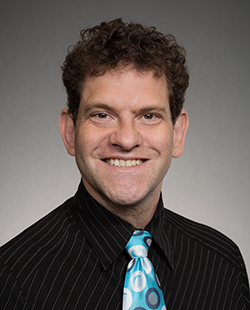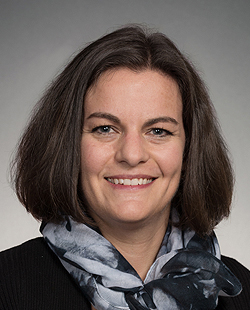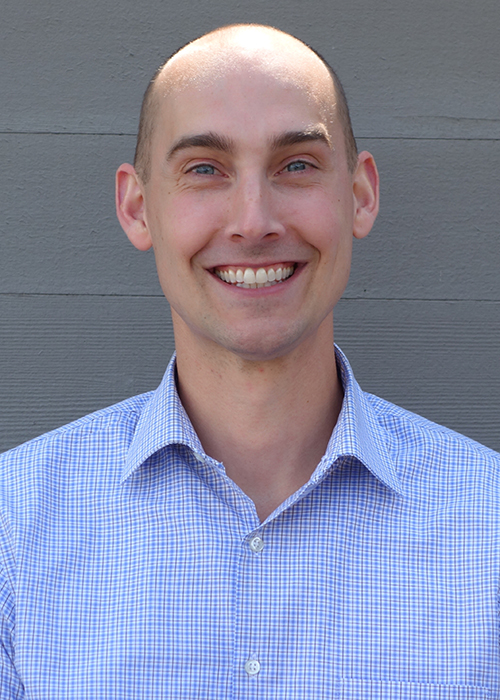
Dr. Hatch is an Associate Professor at the Addictions, Drug & Alcohol Institute (ADAI), Department of Psychiatry & Behavioral Sciences, UW School of Medicine. Her research interests are in the development and testing of behavioral and pharmacologic interventions for substance use disorders and HIV prevention. In particular, her work has focused on the intersection of substance use and HIV-related sex and drug risk behaviors from both the consumer and workforce perspectives, and on implementation factors that affect uptake of interventions. She has held multiple and varied roles in research projects since 1994, and has long-standing experience developing, implementing, and overseeing large-scale multi-site clinical trials with community treatment providers. In addition to her work at the University of Washington, Dr. Hatch is a licensed clinical psychologist at UWMC Outpatient Psychiatry Clinic. Her clinical work specializes in the treatment of drug and alcohol addictions and co-occurring depression, anxiety and trauma.
Anna Sunshine completed her medical school, graduate school and psychiatry training at the University of Washington. Her graduate training was completed in the Department of Genome Sciences where she used high-throughput sequencing approaches to study the biological effects of complex genetic changes in the model organism Saccharomyces cerevisiae.
Connecting her background in genomics with psychiatry, Dr. Sunshine’s research now focuses on identifying genetic risk factors for schizophrenia and characterizing the biological effects of these risk alleles using induced pluripotent stem cell (iPSC) systems. Dr. Sunshine engages individuals living with schizophrenia and their families in research to further our current understanding of schizophrenia biology and help lay groundwork for future treatment development.
I have always been interested in the thoughts and feelings that drive us. This led me to major in Psychological and Brain Sciences at Johns Hopkins University and to later enroll in the psychiatry residency training program at Washington University in St. Louis. Since completing training, I have had an excellent experience working at UW/Harborview’s emergency and inpatient psychiatry services. My teaching interests include the psychiatric interview, documentation, and fundamentals of clinical decision-making. Clinically, I enjoy taking a holistic approach to care, utilizing interventions across behavioral changes, pharmacology, and psychotherapy.
I am an adult psychiatrist and palliative medicine physician within the Department of Psychiatry and Behavioral Sciences. I am dual board certified within the American Board of Psychiatry and Neurology and American Board of Internal Medicine. I practice at Harborview Medical Center (HMC) on both palliative care consult and inpatient psychiatry teams. I chair HMC Psychiatry Quality Improvement (QI) committee. My main areas of interest and expertise are in: the care and treatment of patients facing serious mental illness (SMI), particularly those with co-occurring chronic medical illness; complex communication skills with patients and families; the use of person-centered language in medicine; interprofessional teamwork. I provide clinical teaching and QI mentorship to medical trainees such as residents and medical students. I am the former co-director of the interprofessional health-sciences elective “The Healer’s Art.” I am a member of the Northwest Narrative Medicine Collaborative.
Personal Statement
I specialize in emergency psychiatric care, including triage, rapid assessment and stabilization of individuals in psychiatric or substance-induced crises, and identification/ appropriate referrals for physical conditions that may mimic psychiatric illness. I strongly believe in the approach, “The right care, in the right place, at the right time.”
Personal Statement
I am experienced in the evaluation and treatment of a range of psychiatric conditions including anxiety and panic, mood disorders, psychosis, obsessive-compulsive disorder, posttraumatic stress disorder and personality disorders. I work with adult and geriatric patients in the outpatient setting.
Personal Statement
My primary practice setting is inpatient psychiatry. I am involved with resident and medical student education and training.

Personal Statement
Dr. Daniel Krashin is an Assistant Professor at the University of Washington working in Psychiatry and Pain Medicine. He works with both inpatient and outpatient pain patients, clinics and hospital staff to collaborate on treatment of patients, but also works on improving systems of care delivery to benefit patients and populations across the continuum of care. Dr. Krashin has extensive experience working with underserved and vulnerable populations including the chronically mentally ill, recent immigrants, and HIV patients in the treatment of both psychiatric illness and chronic pain. He has lectured extensively and authored a number of publications in the areas of pain management, comorbid pain and psychiatric disorders, substance abuse in the setting of pain treatment, and pharmacology of opioids and other pain relieving medications. He works closely with residents and pain fellows and participates in teaching the future generations of psychiatrists, anesthesiologists, and pain providers. He is board certified in both Psychiatry and Pain Medicine.
Personal Statement
I am interested in mood and anxiety disorders and the intersection of these with chronic medical illnesses. My approach to treatment is integrative. Working within a cognitive-behavioral framework, I use many traditional CBT methods, including hypnosis, mindfulness training, and concepts from third-generation cognitive and behavioral methods.










